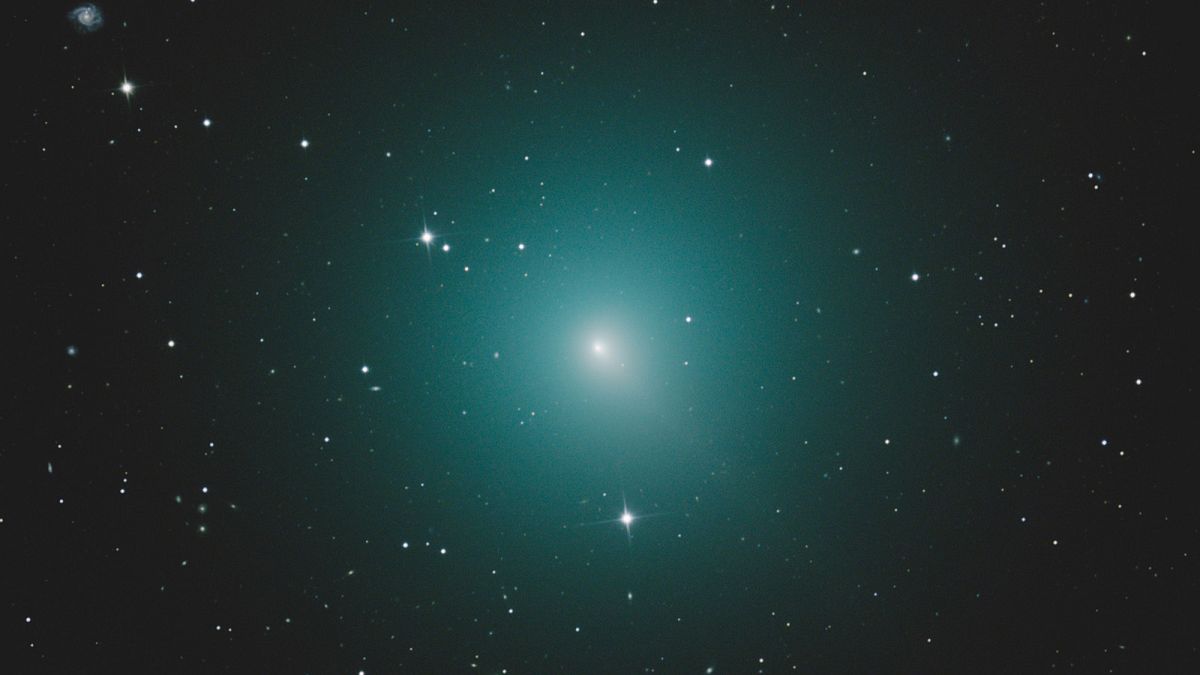Comet 46P/Wirtanen will be visible from dark-sky locations tonight as it safely buzzes Earth at a distance of only 11.7 million kilometers.
Comet 46P/Wirtanen will be visible from dark-sky locations tonight as it safely buzzes Earth at a distance of only 11.7 million kilometers.
The comet will be visible to the naked eye through the next week or two, but will be brightest Sunday night.
NASA has guided viewers to look towards the Pleiades star cluster in the constellation Taurus in order to spot it.
Comet 46P/Wirtanen is a short-period comet with an orbital period of 5.4 years and is relatively small in size with an estimated diameter of just 1.2 kilometers.
“These observations are like a space mission in reverse because the comet flies by us,” said Auburn University researcher and astrophysicist Dennis Bodewits in a statement.
“Because the comet comes very close to Earth, we can investigate the inner 200 kilometers around the nucleus, a region we cannot resolve for most comets. The comet appears to be a close twin to comet Hartley 2, the second target of the Deep Impact mission. Hartley 2 puzzled astronomers because it releases much more gas than was expected from its size. Comparing two will allow us to learn more about how comet activity works,” Bodewits said.
Comet 46P-Wirtanen’s flyby of earth will be one of the 10 closest comet approaches since 1950 and the 20th closest approach since the ninth century.
“We’re going to be observing Comet 46P/Wirtanen with as many telescopes as we can get our hands on,” said Bodewits.
Comet 46P/Wirtanen was discovered by Carl A. Wirtanen in 1948 at the Lick Observatory in California, USA.
